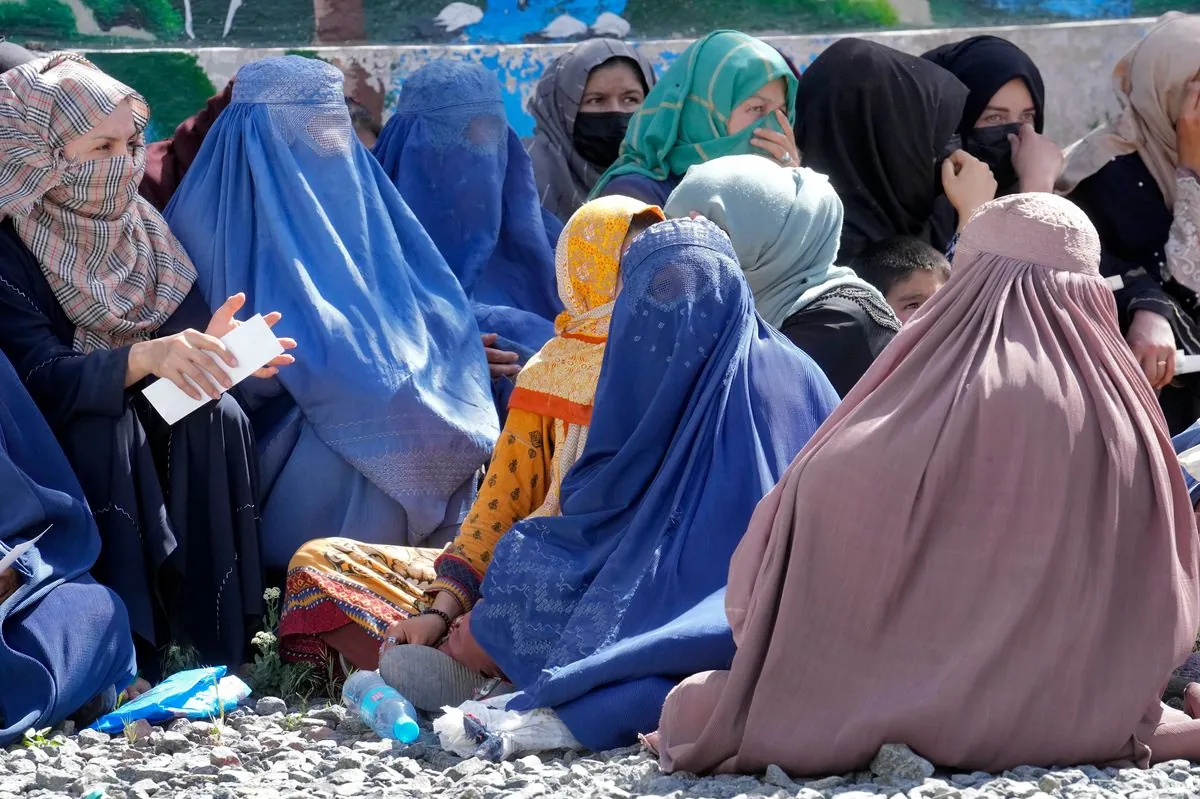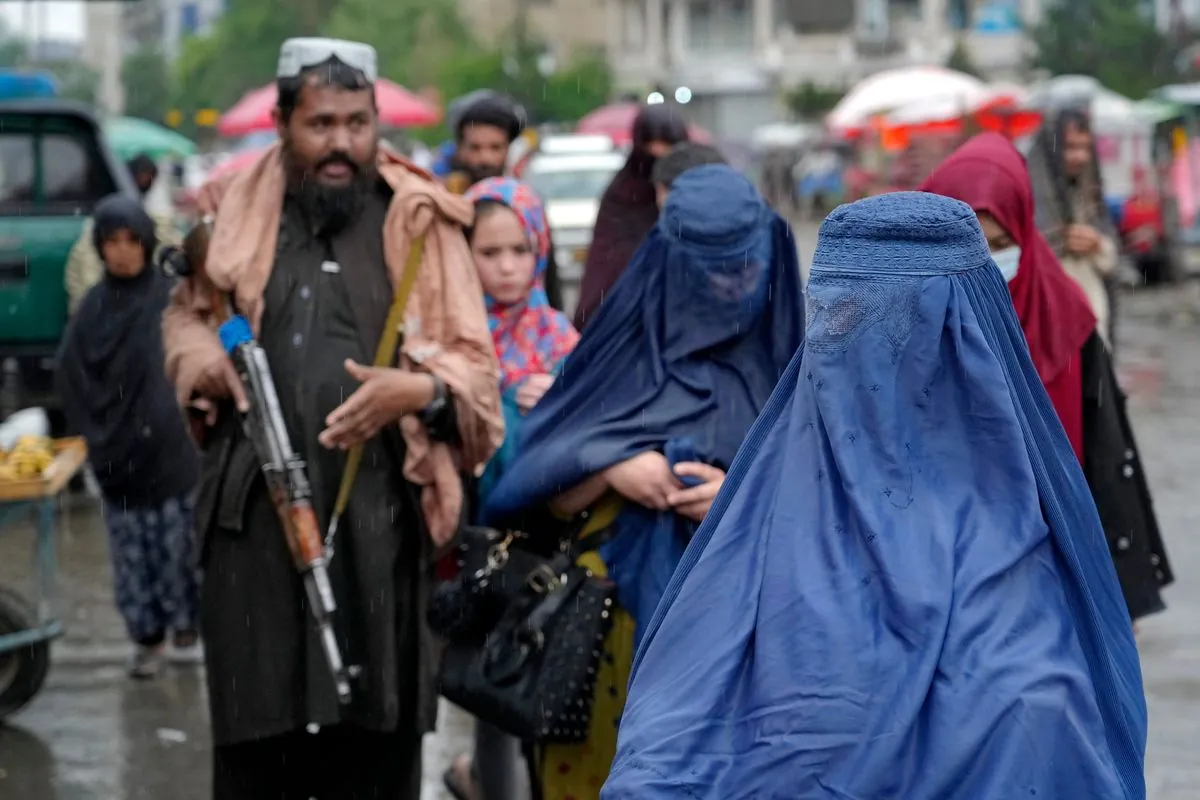Taliban Imposes Strict Laws on Women's Conduct in Afghanistan
Taliban introduces 114-page document regulating public behavior, particularly targeting women's rights. UN expresses concern over expanding role of ministry and its impact on Afghan society.

The Taliban, Afghanistan's current rulers, have implemented new regulations governing public conduct, with a particular focus on women's behavior and appearance. This development comes three years after the group seized power in 2021, marking a significant shift in the country's social landscape.
The recently issued 114-page document, approved by Taliban supreme leader Hibatullah Akhundzada, outlines 35 articles covering various aspects of daily life. These regulations are enforced by the Ministry for the Propagation of Virtue and Prevention of Vice, a body established following the Taliban's return to power.
One of the most contentious aspects of the new laws pertains to women's conduct in public. The regulations mandate that women must veil their entire bodies and cover their faces to "avoid temptation." Additionally, the laws prohibit women from singing, reciting poetry, or reading aloud in public, deeming a woman's voice as "intimate."

The Taliban's interpretation of Islamic law, based on the Hanafi school of jurisprudence, forms the foundation for these strict regulations. This approach has been widely criticized for its human rights implications, particularly concerning women and minorities.
"Given the multiple issues outlined in the report, the position expressed by the de facto authorities that this oversight will be increasing and expanding gives cause for significant concern for all Afghans, especially women and girls."
The new laws also impose restrictions on media and public conduct. Article 17 bans the publication of images depicting living beings, potentially further limiting Afghanistan's already fragile media landscape. Article 19 prohibits playing music, transporting solo female travelers, and mixing of unrelated men and women.
These regulations have raised significant concerns within the international community. A recent UN report highlighted the ministry's expanding role in Afghan society, contributing to a climate of fear and intimidation. The report also noted the ministry's increasing involvement in areas such as media monitoring and drug addiction eradication.
The Taliban's policies have led to increased economic hardship and humanitarian crises in Afghanistan. The international community has largely withheld recognition of the Taliban government, citing human rights concerns. As a result, most international aid to Afghanistan has been withdrawn since the Taliban's return to power in 2021.
As Afghanistan grapples with these new regulations, the future of women's rights and personal freedoms in the country remains uncertain. The international community continues to monitor the situation closely, emphasizing the need for respect for human rights and individual liberties.


































